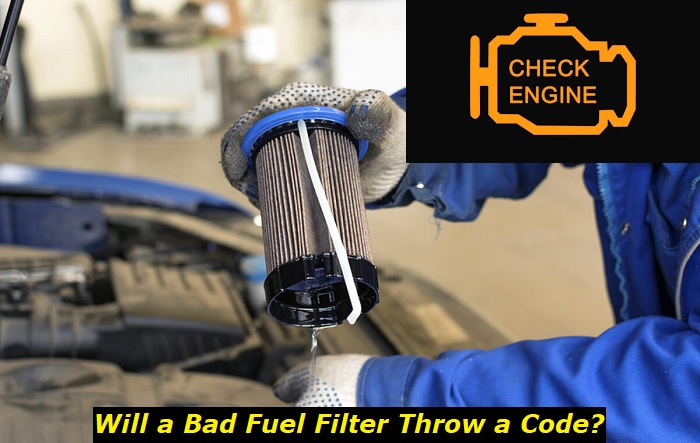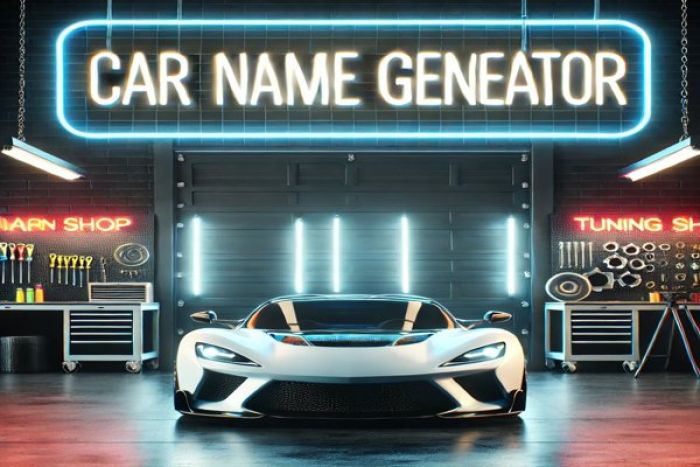A faulty fuel filter will send a diagnostic trouble code or warning lights to your car's computer system. However, the fuel filter isn't directly monitored by an engine control module that detects and reports issues that affect emissions and engine performance. A clogged fuel filter decreases fuel pressure or oxygen sensor problems, triggering warning lights or error codes.
P0087 code highlights
- Level of urgency:High
- Possible culprits:fuel pump, fuel filter, fuel lines, fuel pressure sensor
- Price for repair:$100 - $800
- If neglected:Engine may not work efficiently, fuel pressure may fall evenfurther
- DIY repairs:Impossible
- Can you drive?Carefully

Tricky Codes
- P0087 - System Pressure/Fuel Rail - Very Low
- P0088 - System Pressure/Fuel Rail - Very High
- P0171 - Too lean system (bank 1)
- P0172 - Too rich system (bank 1)
- P0174 - Too lean system (bank 2)
- P0175 - Too rich system (bank 2)
- P0190 - Malfunctioning of fuel rail pressure sensor circuit
- P0191 - Fuel rail pressure sensor circuit performance/range issue
- P0192 - Low input fuel rail pressure sensor circuit
- P0193 - High input fuel rail pressure sensor circuit
- P0300 - Random misfires sensed in multiple engine cylinders
- P0301 - Misfire Detected in Cylinder 1, engine cutting out
- P0302 - Misfire Detected in Cylinder 2, engine cutting out
- P0303 - Misfire Detected in Cylinder 3, engine cutting out
- P0304 - Misfire Detected in Cylinder 4, engine cutting out
- P0180 - Fuel Temperature Sensor, Decreased engine performance and fuel efficiency
Fixing a Bad Fuel Filter
When your car shows symptoms commonly linked to a clogged fuel filter, you should follow the right diagnostic process to determine the main cause of the issue.
- Start by inspecting your fuel filter and any related signs of leaks or damage.
- Check the vehicle's maintenance history to determine if the fuel filter is overdue and needs cleaning or replacement. Replace the old and worn-out fuel filter and make sure you connect its fuel lines properly.
- Connect the right diagnostic equipment to the vehicle's onboard diagnostic port to check any stored diagnostic trouble codes. Diagnostic trouble codes like P0087 (Fuel Rail/System Pressure - Very Low) or P0171 (System Too Lean) show a problem with the fuel delivery system, including a bad fuel filter.
- Check fuel flow and pressure. This helps determine if the fuel line has sufficient pressure or if it's affected by a clogged fuel filter. To do the fuel pressure test, locate the vehicle's fuel pressure test port that's found on the fuel rail, connect a fuel flow pressure gauge, switch on the ignition, check the gauge, and compare your readings to those of the manufacturer's specifications. A drop in fuel pressure shows restrictiveness in fuel flow caused by a clogged fuel filter.
- Suppose the fuel pressure is within the specification and the status of the fuel filter is good. In that case, you can consider other possible causes of the Diagnostic trouble codes and observed symptoms. Common alternative problems are faulty fuel pumps, oxygen sensor issues, and vacuum leaks.
Signs of Bad Fuel Filter
- Trouble Switching On Your Car
If experiencing issues when starting your vehicle, there are several possible causes, and among them is a bad fuel filter. A clogged fuel filter blocks fuel flow into the car's combustion chamber, which makes it challenging to start the engine.
- Fuel Pump Failure
A bad fuel filter forces the fuel pump to work extra hard than it should, which may lead to blowing up.
- Unevenly High Engine Temperature
When there is an irregular combustion cycle because of low fuel supply, the car's engine may overstress or overwork itself, leading to risky high temperatures.
- Check Engine Light Switches On
When the fuel filter is severely clogged, the injector won't get sufficient fuel, which triggers the check engine light.
- Misfiring Engine
Clogged filters block the gas from getting to the combustion chamber. The low-pressure state leads to misfiring conditions. This can lead to problems like spoiled catalytic converters and fouled-out spark plugs.
- Stalling
Insufficient fuel also leads to complete or intermittent engine stalling because the engine will have no fuel to operate. The more the fuel filter clogs, the more frequently your engine will stall.
- Engine Hesitation
A clogged fuel filter makes an engine hesitate, especially when accelerating since insufficient fuel flow interferes with combustion.
- Reduced Fuel Efficiency
Decreased fuel flow because of a clogged fuel filter lowers fuel efficiency since the engine will be forced to work harder and with less efficiency.
How Long Will a Fuel Filter Last?
A fuel filter needs replacement after every 20,000 - 30,000 miles. Moreover, replacing a fuel filter frequently helps in reducing the risk of damaging your car's engine.
How often you should replace a fuel filter will depend on the vehicle's model, make, and manufacturing year. The older the vehicle, the more frequently you need to replace your fuel filter.
Tips for Maintaining Your Car's Fuel System
- Have frequent check-ups and maintenance for your car, depending on what the manufacturers recommend.
- Check the fuel line regularly for any signs of damage or wear.
- Have records of your vehicle's fuel mileage. In case of any noticeable performance or efficiency decrease, have it addressed by a professional.
- Use the best quality fuel since poor quality fuel contributes to clogged fuel filters.
Cleaning Your Car Fuel Filters
Cleaning your fuel filter is not the thing you will want to do regularly. But sometimes, it may help you save the car from working imperfectly. If you don't have the possibility to replace the filter, just follow this simple procedure:
- Relieve all the pressure in a fuel system
- Detach the negative terminal of your car's battery
- Find the fuel filter
- If required, jack up your vehicle
- Put a bucket under the filter to collect fuel
- Disconnect the clips which fasten the fuel line to the fuel filter
- Detach the fuel lines
- Take out the fuel filter
- Pour out any fuel that's still in the filter
- Spray the fuel filter using a pressurized carburetor cleaner
- Remove all the debris and then leave the filter for about an hour to dry
- To reinstall, slide the fuel filter into its bracket
- Take back the clips and the fuel lines
- If you had jack up your car, lower it
- Reconnect the fuse and the battery
- Start the engine
- Check if there are any fuel leaks
- Properly dispose of the collected gas
What Causes Clogging in Fuel Filters?
- Sediment from bad-quality fuel
- Rust from the fuel tank, fittings, and steel fuel line
- Water from filling stations' storage tanks
- Silt deposits
- Off-roading
- Unclean air filter
- Dirt and dust get in the fuel tank while filling the fuel
- Moisture from condensation build-up in a fuel tank
Will Replacing the Fuel Filter Enhance Bad Gas Mileage?
As said, a bad fuel filter leads to bad gas mileage, depending on the status of the filter. Cleaning or replacing it helps in improving bad gas mileage.
When the fuel filter gets dirty or clogged, it restricts fuel flow to the engine leading to a decrease in gas mileage and fuel efficiency.
Reasons Why Replacing a Fuel Filter Will Improve Gas Mileage
- Preventative Maintenance: Replacing fuel filters frequently is preventative maintenance for your car. Keeping it clean and functional helps in ensuring ideal fuel efficiency and engine performance.
- Decreased Strain On Fuel Pump: Clogged fuel filter forces the engine to work harder to get the gas it needs. This increases wear and tear of the fuel pump and decreases fuel efficiency. Replacing old fuel filters helps in decreasing this strain and improving efficiency.
- Improved Fuel Flow: Clean fuel filter enables fuel to flow freely, and this will help in improving fuel performance and efficiency
- Cleaner Fuel Injectors: Dirty fuel filter won't block contaminants from reaching the fuel injectors. This causes them to be damaged or clogged, leading to decreased fuel efficiency and poor engine performance. Regular changing allows the fuel injectors to function properly.
Can I drive a Vehicle Having Clogged Filter?
It's recommended not to drive any car having a clogged fuel filter. When the filter is clogged, there will be no sufficient fuel flow. This will lead to several problems, including decreased performance, stalling, reduced fuel efficiency, etc. If you are sure that your vehicle has a clogged filter, you should replace it immediately.
But of course, it's not the reason to call a tow truck once you feel any symptoms of a bad fuel filter. You can still drive to the nearest dealership or the trusted repair shop.
Fuel Filter Diagnosis
The steps below will help determine if your vehicle has a clogged fuel filter.
- Check the filter: Check for any signs of clogging or damage caused by debris, dirt, or rust.
- Fuel Pump Noises: A weakened or strained fuel pump makes unusual sounds. This shows it's working extra hard to push fuel via the clogged filter.
- Check Engine Performance: Clogged fuel filter causes rough idling, engine hesitation, stalling, misfires, etc., which leads to performance issues and poor fuel mileage.
- Check for Fuel Leaks: Any fuel leak around the fuel filter is due to a loose connection or damage and may need a replacement.
Conclusion
Identifying and dealing with a bad fuel filter is relatively simple with the right information and tools. Alternatively, you can also consult a professional to handle the replacement.
About the authors
The CarAraC research team is composed of seasoned auto mechanics and automotive industry professionals, including individuals with advanced degrees and certifications in their field. Our team members boast prestigious credentials, reflecting their extensive knowledge and skills. These qualifications include: IMI: Institute of the Motor Industry, ASE-Certified Master Automobile Technicians; Coventry University, Graduate of MA in Automotive Journalism; Politecnico di Torino, Italy, MS Automotive Engineering; Ss. Cyril and Methodius University in Skopje, Mechanical University in Skopje; TOC Automotive College; DHA Suffa University, Department of Mechanical Engineering






Add comment